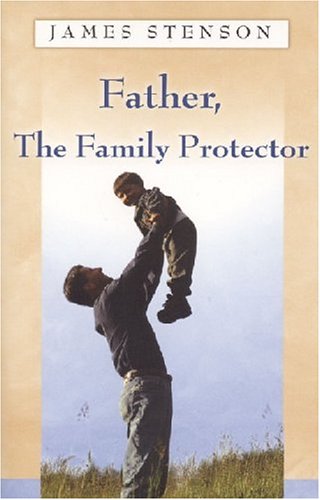So my girls have completely fallen in love with the Lion King. Who would've thought, a 20-year-old Disney flick would capture their attention, and so quickly supplant
Frozen? Well, partially anyway. It's their (and, by proxy,
my) favorite character story
du jor, so...yes I'm going to go there and write about a Disney movie on a blog about cultural warfare.
As we were watching it during one of our recent Friday pizza-and-movie nights, the story eventually came to the scene where the now-adult Simba, who was driven out by the searing indictment of his conniving and power-hungry uncle Scar, begins to ask questions and wonder what he's supposed to be doing with his life. Sounds familiar, right? Young man grows up with little or no guidance, and suddenly finds himself an adult groping for direction in his life. As Simba starts seeking for answers, he is led by Rafiki, the wise sage baboon, to look at his own reflection. At first he finds it pointless, but directed back again by Rafiki, he looks deeper into his image for that of his father.
Here's the scene:
So...could we consider this snippet from a children's story in the light of our own wandering and groping for identity? How often have we given into the accusations of the world, particularly of the accuser, the father of lies (cf. John 8:44)? How often do we believe that we can't do it, that we're not good/strong/handsome/beautiful/holy/worthy enough of the lofty tasks set aside for us from the foundations of the world? Most of the time this slide into believing the accusations doesn't happen out of malice, so much as it does because we take the easy road out to satisfying our deep-seeded human need for belonging and acceptance.
After all, isn't it so much easier just to allow the answers in through our five senses--from the world--than to take the time to look inside, to recognize and water the seed that our Creator has put in us? Instead of looking to the One who so desires to be the ultimate source of our affirmation, for who we are, we allow noise and din of the world to begin to answer the question for us. And the answer is... "You are only as (fill in the blank with a desirable trait) as we say that you are." We can even begin to let the accusations and the anxiety that flows from them define us. We trade the peace and freedom that comes from grounding in the truth of who we are for the worry and bondage of believing lies.
I know I have. A lot. I will forever be a recovering
lie-believer.
But
those lies are not who we are or what we were made for.
St. Paul gives us what is arguably the most poignant reminder of who we are in his Letter to the Romans (8:14-17):
For those who are led by the Spirit of God are children of God.
For you did not receive a spirit of slavery to fall back into fear, but you received a spirit of adoption, through which we cry, “Abba, Father!”
The Spirit itself bears witness with our spirit that we are children of God, and if children, then heirs, heirs of God and joint heirs with Christ, if only we suffer with him so that we may also be glorified with him.
Let's rewind and review that one more time. So, according to St. Paul we are:
1.
Children of God. That is, children of a perfect Father, who wants us to call him
"Daddy!" as obedient children do, more than "Master."
2.
Joint heirs with Christ. Our Lord, the second person of the Trinity, by descending into our humanity, now raises us up to a share in the glory of his divinity.
Christ came and suffered for us--and the ultimate Father sacrificed his only son--so that we could be like him in all things but being. (A previous post from June 3, 2013,
Gods and Goddesses, has more on that). The Second Person of the Trinity lowered himself to walk among us as brother and friend.
Think about that. Let it sink in, and do it often, because
that is the point of truth that the enemy most wants us to forget.
Paul also reminded his spiritual son, Timothy, as he gave him encouragement and "marching orders" in his second letter: "
For God did not give us a spirit of cowardice but rather of power and love and self-control." (2 Tim 1:7)
Of course. That only makes sense. God doesn't remake us into his children, ask us to call on him as
Daddy, then just leave us to our own fallen, weak, broken devices. That would be the ultimate cruelty, (another of the original lies, the first proposed in the garden:
"Does he
really want what's best for you, or is he holding out?" [
cf. Gen 3:1,5]).
The truth is quite the opposite: He gives us everything we need, although that is seldom what we
think we need. The refrain of the old Lonestar song,
Mountains, comes to mind.
"The good Lord gave us mountains, so we could learn how to climb."
Other words come to mind, from St Thomas More, about how incapable we are of judging our own needs and controlling our fate in this life.
So blind are we in this mortal life, and so unaware of what will happen, so uncertain of even how we will think tomorrow, that God could not take vengeance on a man more easily in this world than by granting his own foolish wishes.
Saint Thomas More
So what are we to do with this? The implications of being The answer to that could be a whole other book, volumes really, and I'll have to write more about that later (Part 2?). But for now, let it suffice to say that we only need to follow Mufasa's advice:
Remember who you are. That is, sons, daughters, and heirs of the living God, the
King of kings, who are called to struggle and suffer toward perfection now so that we might rejoice and share in his glory forever.
No more and no less.
+AMDG+



